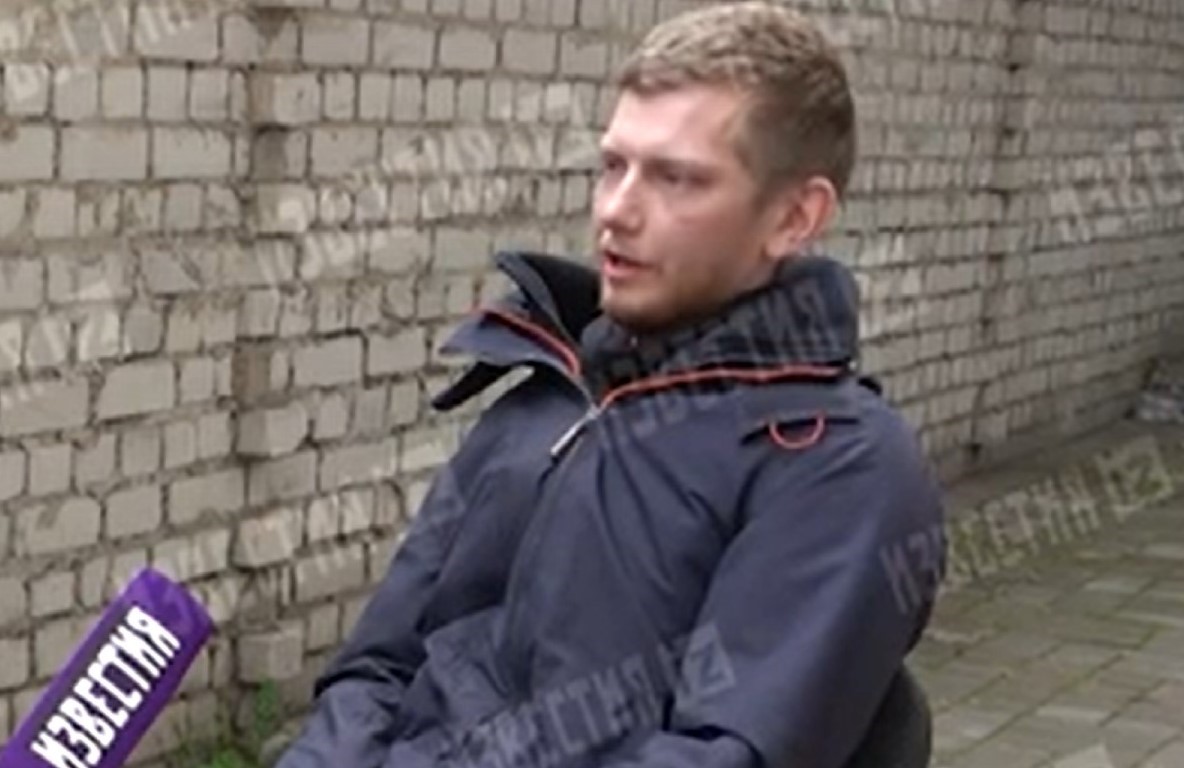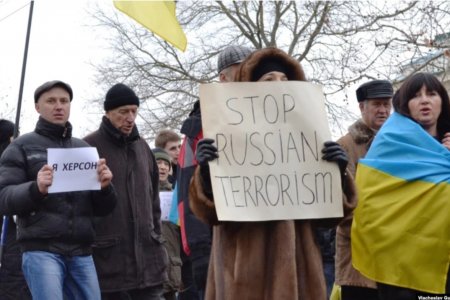
It is now over a year since the Russian invaders of Kherson seized Andriy Horshkov, yet his family have no idea where he is being held. Russia could hardly deny holding him in custody since they showed him on propaganda channels, ‘confessing’ to an absurd plot, yet it was seven months before his mother had any official confirmation that the Russians were holding him. Maria Horshkova has spoken with the Media Initiative for Human Rights [MIHR] and explains that she and her lawyer have, at least, succeeded, via the courts, in establishing her son’s status as a Ukrainian defender. This should, in principle, make it easier to include him in an exchange of prisoners, but there remain grounds for concern given the ‘confession’ forced out of the young Ukrainian and Russia’s ongoing secrecy as to his whereabouts.
As reported, Horshkov is a former police special force officer, but left, after five years of service, in 2021 and had been working as a seaman. His mother reports that, around a month before the full-scale invasion, he suggested that she went abroad, and now understands that he was already anticipating and getting ready for Russia’s attack.
Horshkov joined the Territorial Defence unit on 24 February 2022l Russia overran Kherson very quickly, however, and the Territorial Defence officers would not have stood a chance trying to fight the invaders. By 1 March, the Territorial Defence force had been dissolved, and Horshkov and other members looked for other ways to serve Ukraine while the city was occupied.
While Horshkov might well have been a target anyway, because of his former police work, the Russians were particularly intent on hunting down any members of the Territorial Defence, and would try to trap others by pretending to be a person whom they had already seized and then arranging a meeting. Maria Horshkova believes that this may have been what happened with her son as otherwise it is hard to understand why he would have returned to the apartment he shared with his cousin, Alisa, when he already knew that others had been detained.
It was Alisa who first provided information about how Russian FSB officers and soldiers came for Andriy on 30 March 2022. She reported that the Russians had arrived with bags that were clearly intended for ransacking and plundering the apartment, rather than for ‘gathering evidence’. Horshkov was in no doubt of the danger he faced and tried to flee the Russians by jumping out of a window on the second floor. He hurt his arm badly in the fall but tried to continue running. Unfortunately, the Russians had stationed people around the building, and he was taken prisoner.
Horshkov and his mother had earlier agreed that if he contacted her in Ukrainian, he was alright, while a message in Russia was a warning that things were bad. The initial message on 3 April 2022 was in Ukrainian, and assured her that all was well. In fact, she says, she already knew that he had been abducted, and the family wrote about this on social media. The next message was in Russian and told her to remove the messages on social media. It was earlier reported that the second message in Russian clearly tried to warn the family that Alisa was in danger and must leave occupied Kherson immediately.
Maria later learned from a released hostage that Horshkov had been held prisoner somewhere in a basement in occupied Kherson for the first two months. He was then taken somewhere to stage the supposed ‘confession’ posted by Izvestia and other pro-regime Russian media. There is no way at present of proving that Horshkov was speaking under duress, but there seems every reason to assume this. In all cases to date where men or women were later released, they have confirmed that the Russians obtained any level of cooperation through torture.
Izvestia posted the relevant video on 7 May, under the title ‘Territorial Defence officer has spoken of Ukraine’s plans to abduct Poklonskaya’. Natalia Poklonska betrayed her oath to Ukraine when Russia invaded Crimea and played an active and destructive role, as Russian-appointed occupation ‘prosecutor’, in broadening repression on the occupied peninsula. During what is presented as an ‘interview’ between Izvestia war correspondent Ivan Litomin and Andriy Horshkov, the latter is described as a member of Ukraine’s Territorial Defence with the nom de guerre ‘Batman’. Poklonska is called the deputy head of the Russian state body Rossotrudnichestvo (a post she held for all of three months). It is claimed that Ukraine’s SBU [Security Service] were planning to “abduct” Pokonska “during her visit to the Kherson oblast”. While Kyiv will certainly be seeking accountability for individuals like Poklonska, the alleged plot sounded implausible, as did the alleged role in it played by Horshkov. He was supposed to have learned “from media sources that some businessman had announced a reward if she was delivered to the SBU”. He had purportedly been sent some addresses where she might possibly be and, seemingly with the help of a map (!), he provided information as to which appeared likely and which could be excluded (a hostel, for example, and a house that, he concluded, did not exist). Horshkov almost certainly deviates from the script intended, especially when, in answer to a question about his motives, he says that he was carrying out his civic duty. The ‘interviewer’ therefore gets involved, trying to imply that Horshkov was implicated in a plan to kill Poklonska. Horshkov is not having that and notes that, as far as he understands, the point would be to detain Pokonska, who is facing criminal charges in Ukraine and put her on trial, not to kill her.
It is evident throughout the video that Horshkov is gesticulating only with his left hand, and, at least at that stage, just over a month after he was taken prisoner, he was clearly unable to use his right arm.
After this propaganda video, Horshkow is believed to have been sent to the notorious Olenivka ‘concentration camp’ in occupied Donetsk oblast. Maria has received one very brief letter from her son, and still has no idea where he is being held.
The Russians abducted over one thousand Ukrainians in the Kherson oblast alone, with this number including some children. As of the beginning of 2023, almost 500 people were still held prisoner, with the Russians in many cases providing no information as to where they were held.



